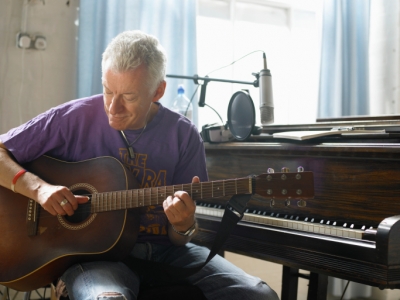What is the career in the field of music therapy?

The COVID-19 pandemic changed life as we know it. Masks, sanitisers, social distancing have become the new normal. In such stressful times, music has come to the aid of many across the world. Singing, listening to songs is helping people cope with quarantine and isolation. And that's exactly what the field of musical therapy is all about Music therapists draw upon the healing power of music to improve the well-being of their clients, especially those with disabilities and illnesses.
There are several psychological benefits associated with music. It has been known to help in treating stress and strain, fear, anxiety and depression, and to enhance concentration and memory in children. It is also used for patients with dementia and autism.
How it works
Music therapy is an emerging field backed by mounting scientific evidence. Music therapists work alongside paediatricians and nurses and other allied health professionals, including speech and language therapists, psychologists, occupational therapists, physiotherapists and social workers.
What are the job prospects
Depending on your interest, you can work as a music therapist in different sectors. Primarily, music therapists work as consultants with hospitals and rehabilitation centres. Music therapy is used for children with physical, developmental and intellectual disabilities. Their treatment does not involve medication. Instead, it focusses on bringing about behavioural and cognitive changes. Similarly, schools for differently abled children may also consult music therapists to help children cope with school work. Many corporate houses ask music therapists to conduct workshops to relieve anxiety and stress of employees.
What to study
To work as a music therapist, a Bachelor's degree in music or psychology, special education, occupational therapy, social work or nursing is a prerequisite.
Where:
- St Mira's College, Pune: One-year, full-time, and two-year, part time, Postgraduate Diploma in Clinical Music Therapy
- Chennai School of Music Therapy: An online, foundation course to train aspirants in the basics of music therapy. Individuals with a Bachelors in Music or related fields can opt for the Postgraduate Diploma programme in Music Therapy
- Nada, Centre for Music Therapy, Chennai and Delhi: Certificate course in Music Therapy - a distance-learning course offered in affiliation with the Directorate of Distance Learning
- Mumbai Educational Trust's Institute of Alternative Careers, Mumbai: Certificate in Music Therapy - a six-month, part-time course.
- S.H Centre for Music Therapy and Mental Health, Amritsar: A distance-education course in Music Therapy. The centre is affiliated to Bharat Sevak Samaj, an agency promoted by the Government of India.
Picture Credit : Google





